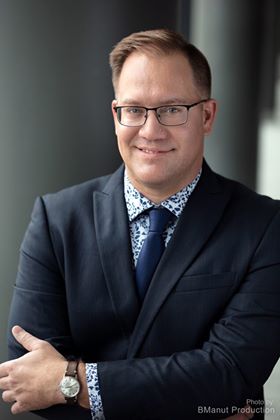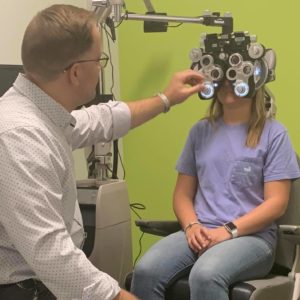For some optometry students, going to doctoral school is just the next step after getting a bachelor’s degree. I admire the young, motivated students that followed the multi-point plan to graduate with honors, study for an entrance exam, and start his or her doctoral journey immediately following undergrad. After optometry school, these young professionals will have plenty of time to explore the spectrum of optometry, honing in on his or her desired practice setting and working towards an ideal work-life balance.

On the other side of the coin are the “non-traditional” students, like myself. We come in many shapes and sizes and from all walks of life. Some of us worked within the vision care industry for years learning and training alongside optometrists and opticians. Others raised families, took care of loved ones; some even took time out for their own health battles, including battling cancer. Others, like myself, worked in a completely different industry and desired to make a career change. The bottom line is that the timelines for the tradition and the non-traditional student look quite different and may include some additional planning and logistics. The choice to turn your life upside down and go back to school is not an easy one.
I can certainly speak to that moment in life when I found myself at a fork in the road. After years in the insurance and risk management industry, I found myself moving up the corporate ladder but feeling drained and wholly unsatisfied. Then an economic downturn coupled with the devastating loss of my older sister brought me to a major life realization: it was time for me to change my mindset. Either I could keep doing what I’d been doing and hope for a different result or I could choose the road less traveled.
Going back to school while juggling work full-time may not sound desirable; the first couple of years spent fulfilling all my prerequisite courses and preparing for the Optometry Admissions Test (OAT) were humbling. But with time, it gave me an amazing sense of achievement—it was empowering. My desire to reinvent myself and dedicate time to personal growth and intellectual self-discovery paid off.
 Fast forward two years and I’m now immersed in my didactic clinical education at the Kentucky College of Optometry (KYCO) utilizing advanced technology to explore medical research. I’m deeply honored to be growing as a student doctor in the service of my future patients. I’m also proud to present our student body in my capacity as student government president.
Fast forward two years and I’m now immersed in my didactic clinical education at the Kentucky College of Optometry (KYCO) utilizing advanced technology to explore medical research. I’m deeply honored to be growing as a student doctor in the service of my future patients. I’m also proud to present our student body in my capacity as student government president.
At times, life can feel like such an inexplicably bewildering experiment. From experience, I’ve found that success, even in great amounts, can’t inform and enlighten like failure. Keep in mind, we typically fail when we push ourselves outside of our comfort zones –that’s something to be proud of. To quote one of my favorite authors, John C. Maxwell, “fail early, fail often, but always fail forward.”

Failure is not a dirty word. It’s not about swallowing one’s pride, either. Failure is the inevitable byproduct of learning and growing. I find great strength in knowing all my life’s experiences (and even some failures) have made me the versatile, unique individual I am today. Taking a calculated risk on one’s self will always bring with it both failures and successes. As I take stock of the long journey that led me here, I realize that all my gratitude and all my joy are predicated on that crossroads moment when I summoned the courage to fail. Fail forward.

